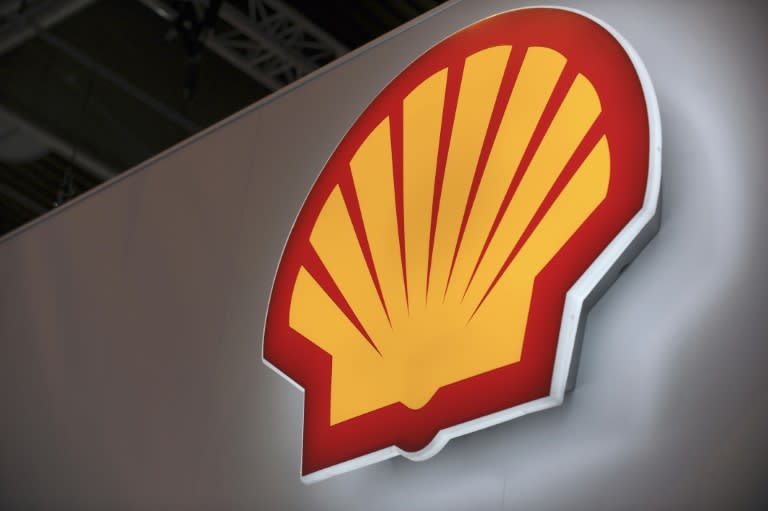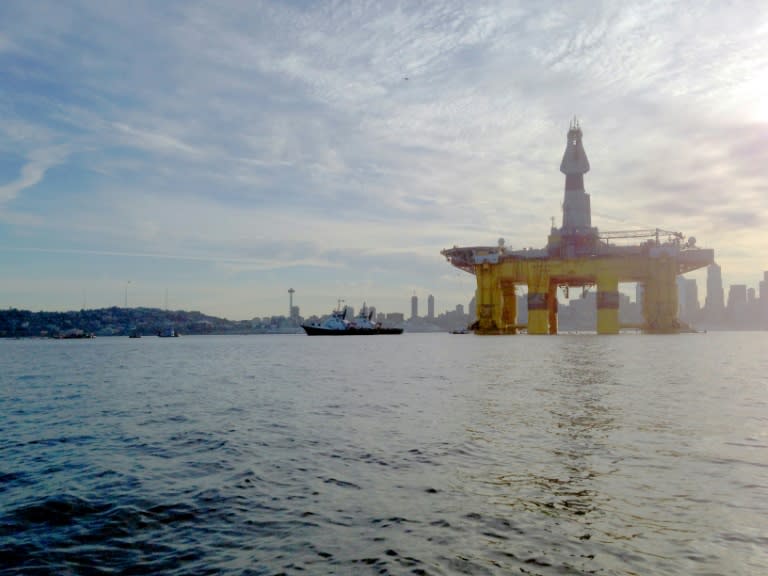Royal Dutch Shell to cut 6,500 jobs on oil price slump
Royal Dutch Shell on Thursday said it plans to reduce its headcount by 6,500 this year owing to sliding oil prices and as it looks to complete a mega takeover. With crude oil futures down by about a half in value since a year ago, Britain's biggest domestic energy provider Centrica said it too would reduce its workforce -- by a net 4,000 positions alongside a cost-cutting programme through to 2020. On Tuesday, energy services group Saipem -- a subsidiary of Italian oil giant Eni -- said it was axing 8,800 positions over three years. Shell, which on Thursday also announced a slide in profits, a further cut to investment and the sale of Japanese operations, provided a stark warning for the industry, saying "today's oil price downturn could last for several years". The Anglo-Dutch group added that it anticipates "some 6,500 staff and direct contractor reductions in 2015". The group employs about 94,000 staff worldwide, according to its website. Shell earlier this year unveiled a mega-takeover of British rival BG Group worth £47 billion ($73 billion, 67 billion euros), as the two firms consolidate their positions in a sector slammed by the oil price slump. Oil prices have plummeted by half to around $50 a barrel since June last year mainly because of a global supply glut. Shell on Thursday said "the company has to be resilient in today's oil price environment, even though we see the potential for a return to a $70-$90 oil price band in the medium term". Shell said it planned capital investment of $30 billion (27.4 billion euros) this year, $3.0 billion lower compared with a forecast made in April and a $7.0-billion reduction on 2014. The group meanwhile added that its net profits slid by a quarter to $3.986 billion in the second quarter compared with the equivalent period one year earlier. "As our results today show, we're successfully reducing our capital spending and operating costs, and delivering a competitive performance in today's oil market downturn," said Shell chief executive Ben van Beurden. - Share price higher - In early trading, Shell 'B' shares were up 2.67 percent at 1,824.50 pence, topping London's benchmark FTSE 100 index, which gained 0.21 percent to 6,644.95 points. BG Group was up 2.31 percent to 1,064 pence compared with Wednesday's close. Shell's takeover of BG will boost the Anglo-Dutch group's flagging output thanks to BG's strong position in liquefied natural gas (LNG), a cleaner alternative to coal and nuclear energy. The new company will be worth twice the value of BP and overtake US energy giant Chevron Corp. upon finalising the sector's biggest deal in a decade. "Holding up the (Shell) share price today is an improvement in downstream operations," said Will Hedden, a dealer at London Capital Group. "The BG Group takeover has been somewhat draining for price action overall this year and may continue to do so until the synergies are clearer," he added. Separately on Thursday, Shell said it would sell its one-third stake in Japanese refiner Showa Shell Sekiyu KK to rival Idemitsu for about $1.4 billion. Shell will retain a 1.80-percent holding in the company. "The sale is consistent with Shell’s strategy to concentrate its downstream footprint on a smaller number of assets and markets where it can be most competitive," said John Abbott, Shell Downstream Director.

 Yahoo Finance
Yahoo Finance 


